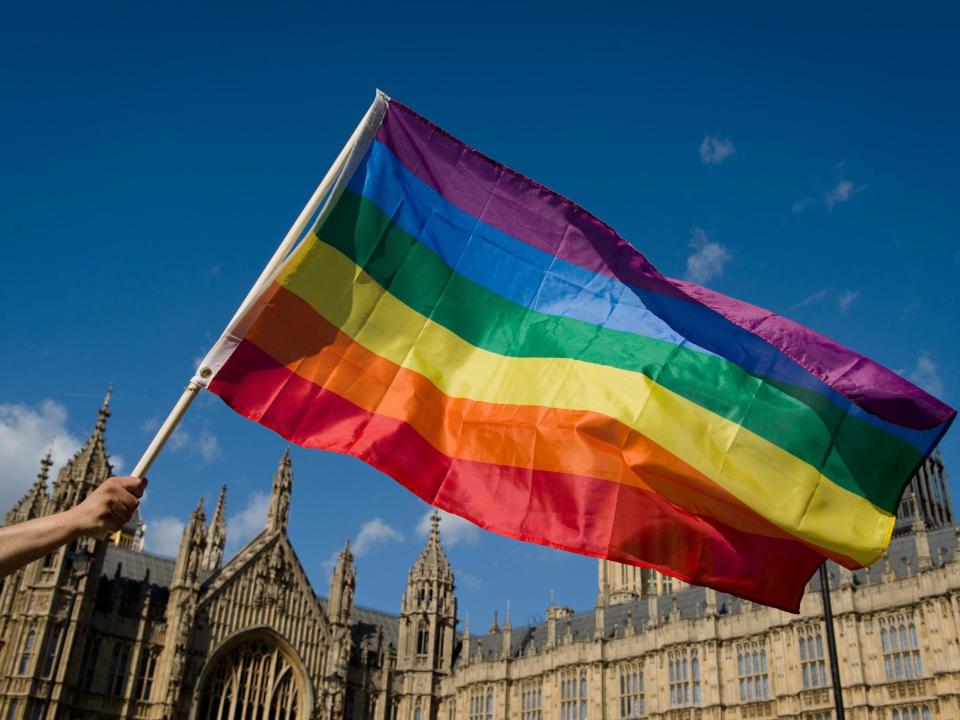It's time to celebrate lesbian diversity, not give in to transphobia or let the patriarchy silence us
It was just past midnight in early 2011 when, aged 17, I was sat at the kitchen table at home in a village in Cumbria, north-west England, frantically searching for my sexuality online. I was Googling things like “lesbian help” and “coming out” when I discovered Stonewall, an LGBT+ charity. I’d known I am a lesbian since about 14. Three years later, having been brought up in a school and a church that made me feel invisible, I was hitting crisis point. It felt like I wasn’t living; I was surviving.
At the time, Stonewall was promoting a campaign called “It Gets Better...Today” – aimed at supporting gay students in schools – featuring videos with celebrities including Heather Peace, an activist, actor and musician. I’d never heard of Peace, but she was instantly relatable: she looks vaguely like me, she is from the north – and she is a lesbian.
In the video, Peace talked about her first kiss with a girl on Canal Street, Manchester, and echoed the sentiments of the initiative: “You’ve got to be true to yourself, and things really do get better.” In that moment, just before expertly wiping my browser history, I felt less alone. That video gave me hope. It convinced me that I could get my A levels, come to London and actually be happy. (And, right now, I am.)
Today is Lesbian Visibility Day, which is an annual celebration of the diverse lesbian community internationally. Having visibility – and real-life role models – really matters. For me, it validated my identity. Peace’s video kept me going. Her visibility meant that I didn’t feel like a freak, or an insult, or the subject of degrading porn that the boys at school laughed about. It made me see that I’m normal. It left me with the belief that coming out would hurt, but that it would ultimately, undoubtedly be worth it (my mum initially struggled to accept who I am – she’s now a big supporter).
In recent years, lesbians have seen increased prominence. In Britain, Ruth Hunt was appointed chief executive of Stonewall in July 2014 (she will retire from her role this summer), while Lady Phyll has worked relentlessly to ensure the continued success of UK Black Pride.
A raft of TV shows have raised the profile of lesbian or queer women’s experiences, including the long-running The Ellen DeGeneres Show (hosted by lesbian comedian Ellen DeGeneres); Orange Is The New Black (starring openly lesbian actors Lea DeLaria and Samira Wiley); and the BBC’s Lip Service (with Peace in a main role). More recently there has been Desiree Akhavan’s film The Miseducation of Cameron Post; Lena Waithe’s Emmy award-winning “Thanksgiving” episode in the Master of None series; and, of course, the upcoming reboot of The L Word.
Still, I find that some areas of the LGBT+ community are disproportionately taken up by gay and bisexual men. Like the rest of society, men are too often in the highest positions and the most visible.
In the mainstream media, as a journalist, it’s rare for me to see radio shows or newsrooms discussing recent LGBT+ stories – including the Birmingham school protests – with lesbians or bisexual women rather than gay men. I think the patriarchy exists within the LGBT+ community, and that lesbians just don’t have same exposure as their male counterparts.
We need to give more space to lesbians, as well as bisexual, queer or pansexual women. This visibility needs to be intersectional so that it strikes a chord with all, including lesbians of colour, disabled lesbians, and trans and non-binary lesbians. It should encompass, too, women of different religions, ages, nationalities, body sizes, socioeconomic backgrounds – and, I’m sure, more.
It’s also important to call out the disgraceful views of a small number of lesbians, who oppose rights for trans people and will try to hijack this Lesbian Visibility Day. Their bigotry was highlighted at Pride in London last year, when around ten anti-trans lesbians gatecrashed the front of the parade, claiming that “transactivists erase lesbians”. This is completely wrong. Trans and gender non-conforming people have stood by lesbians throughout the gay rights movement (Marsha P Johnson and Sylvia Rivera were key figures in the Stonewall riots nearly 50 years ago). We now need to support them as they fight for their equality.
For me, Lesbian Visibility Day is a moment to be proud of who I am and where I’ve come from. If you’re stuck there reading this from inside your lesbian closet somewhere in rural England (or even further afield), then please don’t give up. It really does get better.

 Yahoo News
Yahoo News 

